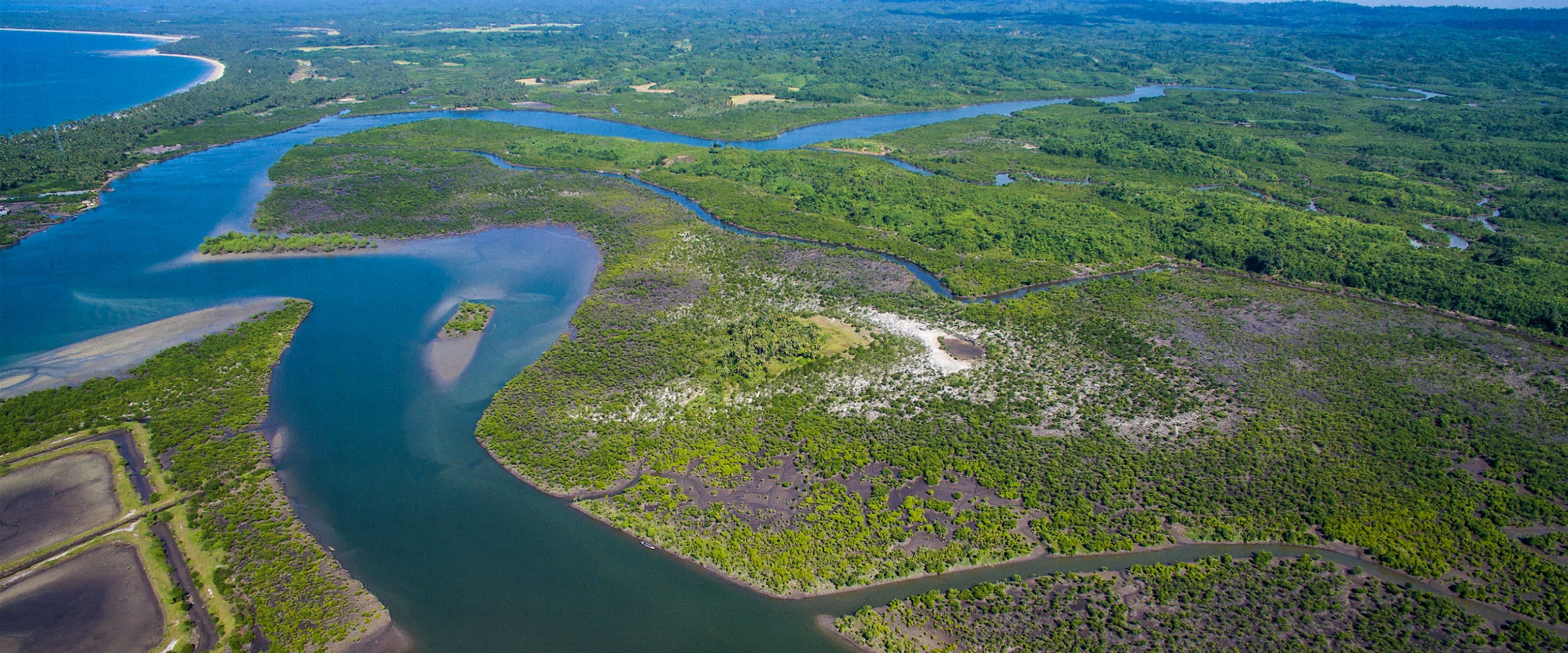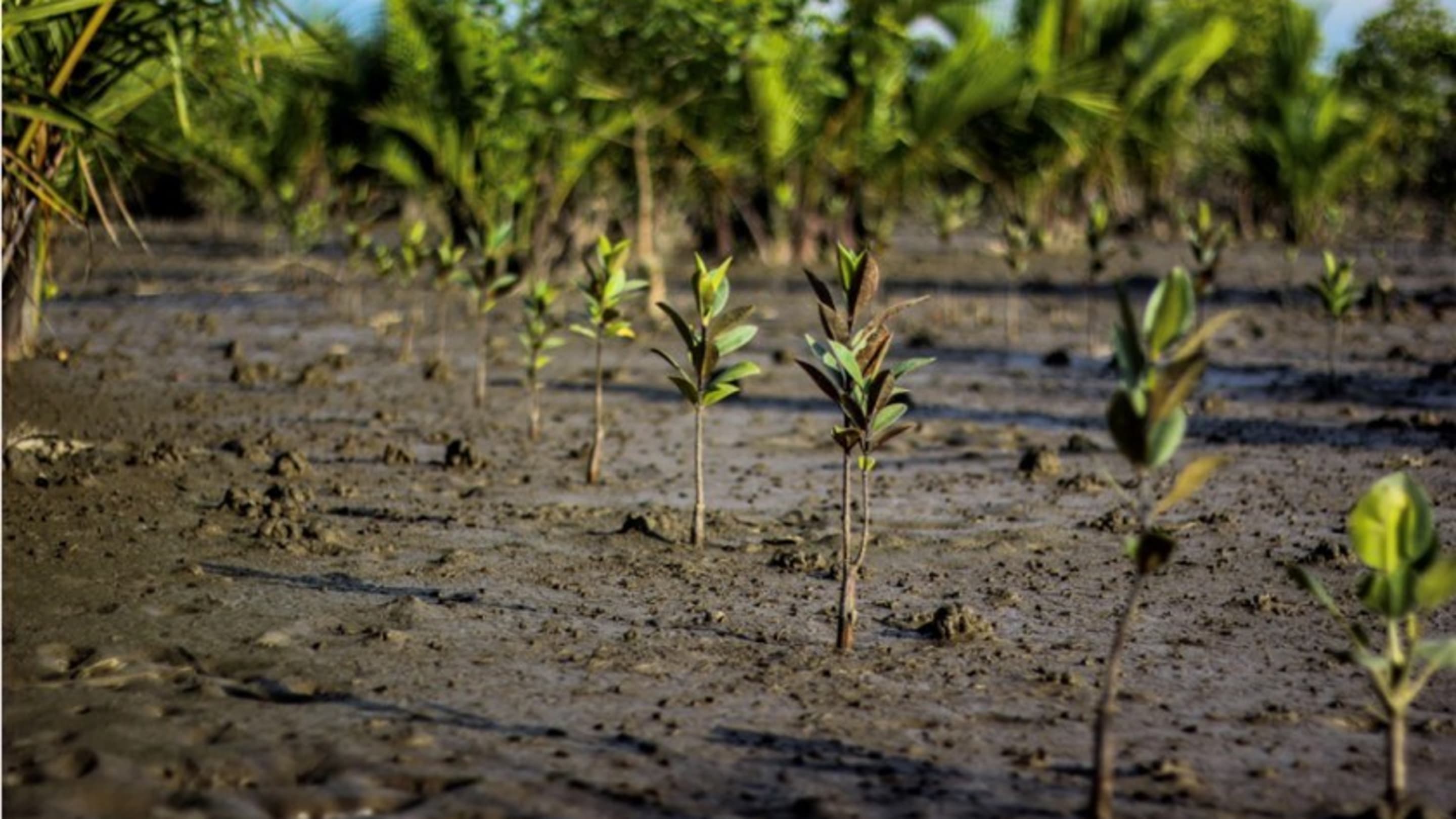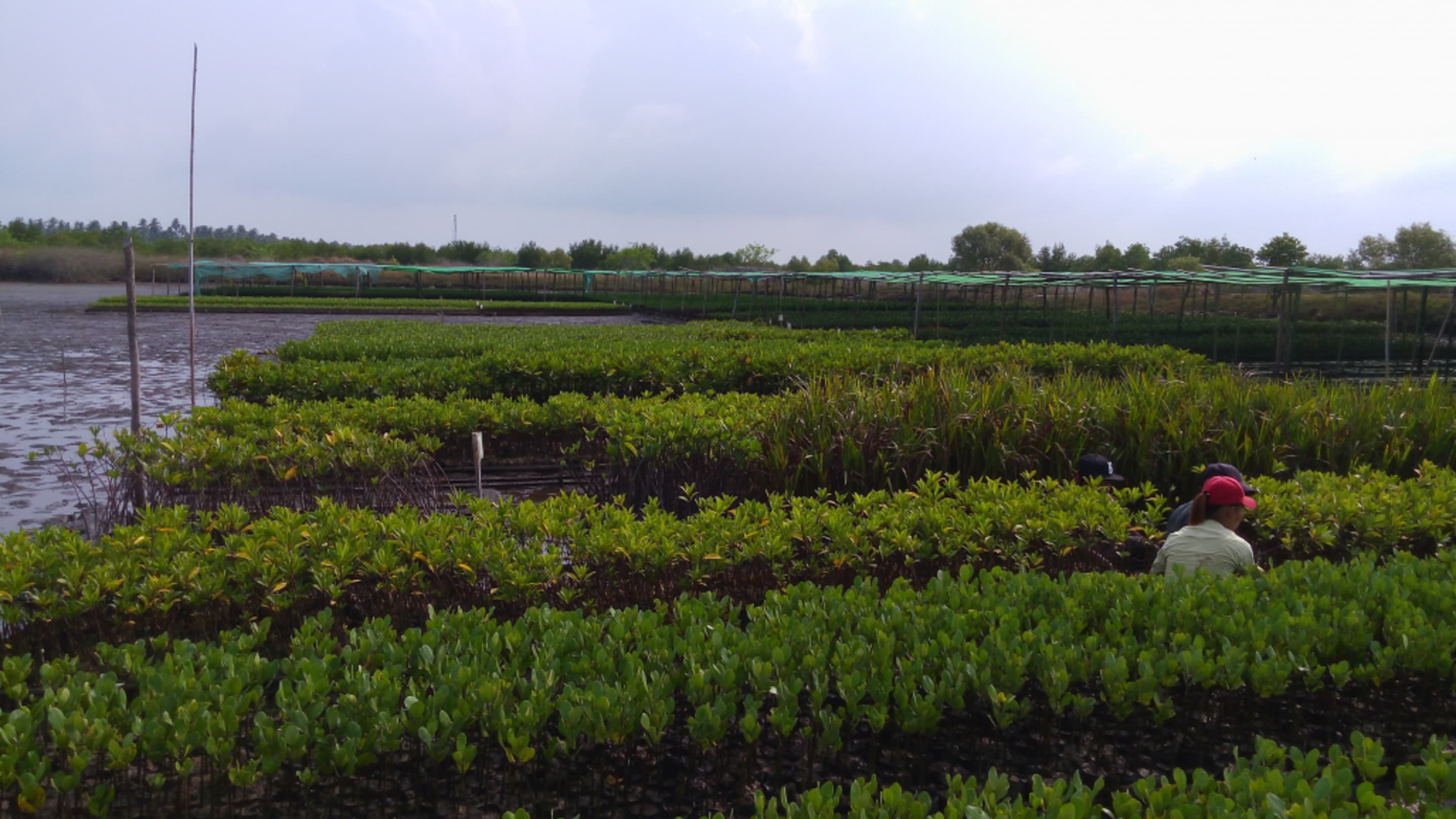
Think regeneration bigger. The BLACKROLL® Mangrove project
As a company, we want to fulfil our responsibility for climate protection and be a forerunner in promoting genuine climate regeneration.
How does that work? Well, by not only avoiding CO2, but also binding it and storing it for the long term.
At BLACKROLL®, we have already invested in holistic carbon avoidance projects to achieve a positive carbon footprint and reduce CO2 emissions. And that's good. As a next step, however, it is also important for us to invest in carbon removal projects that really bind CO2. After all, real climate regeneration can only be achieved if the excess CO2 is removed from the atmosphere.
How do you bind CO2 from the atmosphere?
Carbon farming is the game changer here. It focuses on methods of storing atmospheric carbon in the soil over the long term through sustainable agriculture.
Plants are largely comprised of carbon, which enters the plant naturally via photosynthesis. In this way, the entire terrestrial biomass worldwide removes approx. 450 gigatonnes of CO2 emissions from the atmosphere every year. Rotting and burning the biomass would release CO2 back into the atmosphere. Carbon farming is therefore about putting a proportion of these 450 gigatonnes back into the ground and thus removing them from the atmosphere.
In fact, mangroves are one of the most effective methods. Alongside seagrass meadows and seaweed, mangrove forests are among the blue carbon ecosystems that are extremely efficient at storing carbon in their biomass and the soil or in the sediments. They are also extremely biodiverse. This means that the created landscape also has a high biological diversity and provides an important habitat for many marine and terrestrial species. The structural properties of mangrove forests help to protect coasts from erosion, storms and the consequences of rising sea levels.
The Blue Carbon Project 3818
Through the non-profit organisation for climate and environmental protection blue life, we have financed the renaturation of mangrove trees in Myanmar. In other words, we have created our own carbon removal project. The name Blue Carbon was chosen because carbon storage with mangroves is part of the ocean storage system.
The Worldview International Foundation
has planted mangroves for us in Southeast Asia because they bind CO2 much better under local conditions than our native deciduous trees, for example.
The main objective of this project is to restore and protect a total of 3,700 hectares of mangrove forest. The sustainability of carbon storage depends on the continued existence of this entire ecosystem. During the 25-year credit period until May 2046, the project's 20 hectares of mangrove forest planted through us will contribute to the reduction and removal of greenhouse gas emissions estimated at 16,400 tonnes of CO2.
Project 3818 also helps to reduce poverty and improve the livelihoods of the local community. It enables income generation through paid labour, training, teaching materials and supporting knowledge transfer.
"Making peace with nature is the defining task of the 21st century. It must be the top, top priority for everyone, everywhere."
António Guterres, UN Secretary-General
Standards are an important component of international climate protection projects. Together with our licence partners blue life and the World International Foundation, we are committed to the 2030 Agenda and the UN's Sustainable Development Goals. The recognised projects are certified to leading standards such as the 'Gold Standard' and 'Verified Carbon Standard', thus guaranteeing the highest level of quality and reliability in climate protection.
Dr Arne Fjørtof has been the grand senior of climate protection and founder of the WIF since the 1970s. His personal mission to plant mangrove trees to combat the climate crisis in developing countries has resulted in more than 81 million mangrove trees being planted to date, removing around 50 million tonnes of CO2 from the atmosphere.
© Worldview International Foundation
All things are connected.
Since climate protection knows no borders, we are committed to it wherever our involvement is most effective. In accordance with the BLACKROLL ‘Common Good‘ Action Plan for healthy, fair and sustainable business practices, we are offsetting the emissions generated at our company sites with the mangrove project in Myanmar.
After all, if we really want to achieve our climate targets by 2050, we as a company must take responsibility and actively contribute to global CO2 reduction with projects such as the renaturation of mangrove ecosystems.
Only in this way can we be part of the most important regeneration - that of the global climate.


